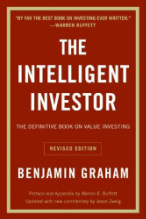
that life’s delights depend, to a certain degree, on one’s finances. If you’re
out of work or very unhappy with your job or if you tend to spend more than you make to keep up with the proverbial Mr. and Mrs. Jones, finances affect your life. That’s why financial management plays a significant part in LifeNuts. Often the poorest Americans are not the skinniest; their bodies don’t resemble the gaunt skeletons of Holocaust victims; no, they’re often the most obese. Yes, some of this can be ascribed to lack of education but much of it depends on money – or lack of it.
Some must work two or three jobs to make ends meet. They hustle from
one to another, grabbing a meal at a fast-food place, and never find the time to exercise. A diet saturated in fat and a lack of exercise spell obesity. True, money can’t buy happiness but it pays the bills and, if invested wisely, can provide a comfortable nest egg. Then, when you’re 65, you can work because you want to, not because you have to. In the next 20 years, you’ll witness the majority of the baby boomer generation having to work. Some will never retire. Of course, LifeNuts never “retire;” they “transition” from one endeavor to another. But they are financially able to choose to keep working or to leave their job and try something they’ve always wanted to do.
About 20 years ago, one of my favorite patients, a psychologist, shared with me that she always wanted to be an actress. But her parents discouraged this, worried that she would struggle. So, after working for many years in her practice, she decided to switch careers, something she could do since she and her husband were financially OK. In her late 40s, she made the move to New York City and took acting lessons and, within a year, she joined an acting troupe that traveled around the country. Her financial situation allowed her to fulfill her childhood dream.
Many physicians, dentists, podiatrists, college professors, and others with doctoral degrees simply cannot retire. In fact, less than five percent of them cannot retire at their normal lifestyle when they turn 65. Shocking? Yes, they made high-level incomes but most of them didn’t understand investing and didn’t care to learn … and they lived “the high life.” Jen, the high school
grad, was worth a million well before she turned 40.
A recent blog (10-3-12) discussed some financial aspects of being a LifeNut and how Jen, the millionaire-mommy-next-door, rose to a seven-figure net worth with only a high-school education. She lives, not within, but below her means, and she has become a master investor. If Jen can do it, most of us can invest successfully as well.
When I cross train in the early morning, I watch a CNBC show called Squawk Box, which features three hosts, two of whom are fit, and several daily guests. The hosts present lively financial discussions and add humor, which helps to start the day. Their guests are usually men or women well-known in financial circles: CEOs of large companies, hedge fund managers, political experts, financial analysts. They articulate their views on a variety of topics and apparently have achieved a
high level of financial success. A few weeks ago I noticed that two of these guests were rather obese – one looked to be in his early 40s and qualified for the morbidly obese level (the highest), but another one, presumably in his late 40s, was well beyond that level. He looked like an inflated Pillsbury dough boy – virtually no neck (layers of fat nearly enveloped his chin) and his waistline might have exceeded 60 inches. Incredible, I thought. Here are two really smart guys who seemed clueless about their health or maybe they keep so busy that they don’t exercise. They (as well as some Fortune 500 CEOs that appear on this show) disprove the notion that obesity is limited to poor people.
The December 17 issue of Barron’s, my favorite financial publication, ran an article about an average fellow’s investing, An Everyman’s Investment Success. Barron’s is available in most libraries
and many articles are available online. This average investor, Jim Milicia, retired to Florida with his wife in 1999 after a career working in Cleveland. He was 54, well under that magic “65” – the age when less than five percent of doctors can retire. Jim was a lifelong investor, which is the first clue: he not only saved money but invested it. Now, at 67, he spends time each day monitoring his portfolio of about a million dollars. With no formal training in investing, like Jen, he learned on his own. His favorite investment book is the same as mine, The Intelligent Investor by Benjamin Graham. Ironically, I have known very successful financial managers who have not read this book. I left one of them several years ago. If he had stuck with Graham’s principles, I’d probably still be with him. I liked Jim’s final words: “"What I do is nothing special. But I have been able to enjoy some stock profits with the help of Barron's, Joe Z. (his broker in Cleveland), and some common sense."
Yes, I’m sure he’ll admit to having made investment mistakes. We all do. But investing over the long term allows you to participate in the financial success of companies through stocks. Jen started her own company and sold it and then started another. Right now real estate is a bargain, especially in some parts of the country. Some stocks and mutual funds are still bargains. Yet some
real estate and some stocks are not worth buying.
Becoming an investor involves knowledge, risk taking, and fear. Sooner or later you have to dive into the water. Do it wisely. Do your homework. And please, please avoid pitches by financial sharks, like Bernie Madoff and Charlie Keating, who cost many trusting investors their retirement
savings.
Also last week Squawk Box played around with a service that ages your face to show you what you’ll look like at age 70, 100, etc., a marketing ploy by Merrill Lynch to motivate younger investors to start saving and investing for the future. And, of course, to become clients of Merrill. They want the younger generation to realize that it will grow old, sooner rather than later. Millionaire Jen went through five brokers before she realized she could do as good or better and learned to invest on her own.
Many in their 20s, 30s, and 40s like to procrastinate investing or they put faith in their company’s 401K plans – only to see it evaporate in crashes like 2008-2009. The wise ones keep at it. Warren Buffet, a big fan of The Intelligent Investor, weathered 2008-2009 just fine. He buys when most are afraid and he holds his stocks generally a long time.
Trust me, 50 approaches faster than you’d like to think and so does 60. It’s awfully nice to be financially fit when you’re 60, rather than worrying about your retirement portfolio and trying to hit home runs when you should only need singles. Being a total LifeNut, especially at a young age, will allow you to hit singles and not worry about the home runs. Why not set financial goals on January 1? Believe me, 65 comes much sooner than you think it will. And, until next week, have a happy New
Year!


 RSS Feed
RSS Feed